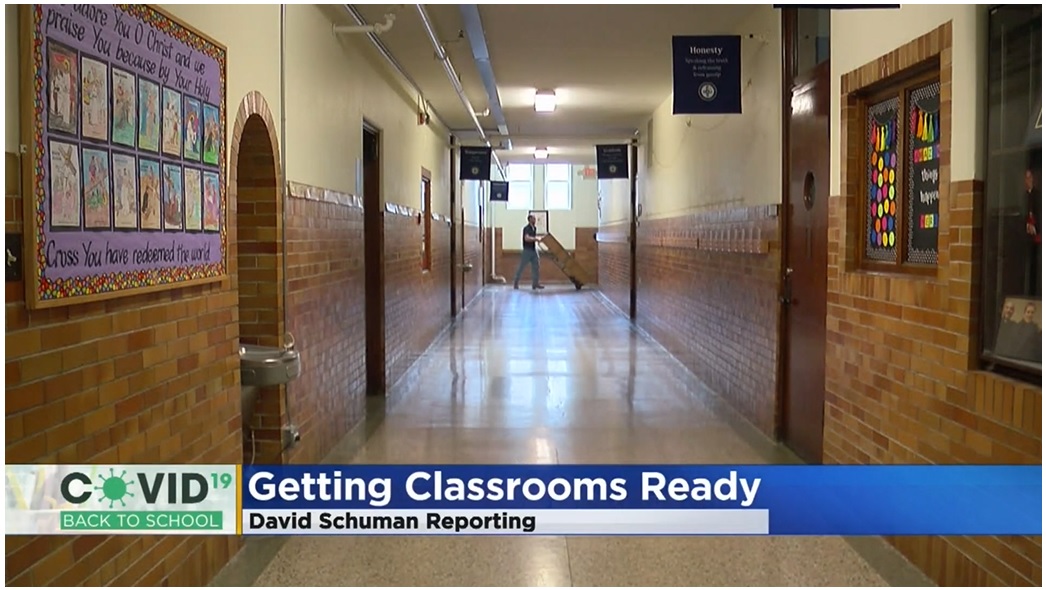Glance around social media in recent years and one would think American Christmas traditions revolve around elf-on-the-shelf pranks, movies such as “A Christmas Story” and “Home Alone,” and tortured portrait sessions that magically become pristine family photo cards. These can all be fun Christmas traditions, but take a step back and look at them with an objective eye for a moment.
Do they ever seem a bit, well, shallow—if not self-centered and busy?
If so, perhaps it’s time to start some new traditions with your children this holiday season—but not new ones such as the trends that constantly pop up on social media. I’m talking about looking to the past for some fresh insight, starting with one of my favorite Christmas traditions: reading old-fashioned Christmas stories.
My love for old-fashioned Christmas tales started the Christmas when I was 11, when my parents gave me a book called “Christmas in My Heart.” Edited by Joe Wheeler, the book’s contents were culled from old St. Nicholas Magazines and other short story venues, many hailing from what Mr. Wheeler called “The Golden Age of Storywriting” during the late 19th and early 20th centuries. Wheeler published 30 of these volumes, many of which sit on my bookshelf, just waiting for someone to curl up with one in front of the Christmas tree.
But these stories offer more than just a cozy hour by the fire. They also provide a wealth of Christmas traditions that have the potential to bless both young and old. Here are just a few possibilities drawn from these old-fashioned stories to try with your children this holiday season.
Make Homemade Gifts
Christmas of 1955 was a slim one for his Tennessean family, J. Stephen Conn wrote in “A Homespun Christmas,” as medical bills overwhelmed the small salary from which his father provided for 12 children. So his father decreed that only homemade items would be allowed for Christmas. On Christmas morning, potholders, bows and arrows fashioned from sticks in the woods, and coupon books were found under the tree.
“I noticed something unusual inside myself as I made my way down the stairs—a feeling I had never had before,” Mr. Conn wrote. “Sure I was excited about opening the gifts with my name on them, but most of all I couldn’t wait to watch my brothers and sisters open the gifts I had made for them. I think just about everybody must have felt the way I did.”
So try a homespun Christmas in your family this year, encouraging your children to make crafts or give service to others instead of store-bought presents. It may just rekindle the joy, wonder, and excitement of giving to others.
Give to a Curmudgeon
We all have people who get under our skin or whom we’d rather avoid. Nowhere is this better depicted than in Hartley F. Dailey’s Depression-era story, “The Red Mittens.”
The tale tells of a poor farmer, his 8-year-old daughter, Linda, and the grumpy, neighboring farmer, Old Man Riggs. Despite the unneighborly relationship between the two farms, Linda determines to make the old man a pair of mittens, wrapping and placing them on Riggs’ porch on Christmas Eve. The next morning, “Old Man Riggs’ Model T turned into our drive,” Linda’s father explained. “He had his usual death grip on the wheel, but on his hands were the flaming red mittens.”
At Christmastime, it’s always easy to give to those we love, but it’s often those who are the most unloveable—the curmudgeons among us—who need gifts the most. Seeking these individuals out and giving them a little unexpected love might just be the beginning of a surprising and rewarding relationship.
Peace and Good Will Toward Men
While neighbors and acquaintances can get on our nerves, sometimes it’s our own family members who are the most difficult to deal with at Christmas. Such is the tale Paula Palangi McDonald spins in “The Last Straw,” a story of sibling rivalry and bickering.
Attempting to reconcile her squabbling brood, mom Lisa sets up a small manger in her household, having her children draw the name of a family member to do good deeds for each week in December. Whenever a good deed is accomplished, the doer secretly places a piece of straw in the manger, seeking “to surprise Baby Jesus when He comes on Christmas Eve by making Him the softest bed in the world.” Unfortunately, such a task was a lot harder for one member of the family than ever imagined.
Christmas is supposed to be a time of “peace and goodwill toward men,” yet it often turns into chaos and friction in the busyness of the season. Why not steer your family away from such tendencies by creating fun games like the one in “The Last Straw”? Incentivizing harmony and unity will give your children one of life’s best gifts: solid and fond sibling relationships.
Invite a Stranger
Sometimes the loneliest among us are the ones who put on a good front. Such was the case with “Jolly Miss Enderby,” a cheerful second-grade teacher depicted in a story by Paul Gallico.
But while Miss Enderby puts up a good front about eating Christmas dinner in a restaurant, her waitress, Bella, uneasily senses the woman might need a friend, so she asks Miss Enderby to be her Christmas dinner guest at a family party. Drying her secret tears, Miss Enderby joyfully accepts, saying, “Oh Bella, I would love to. What a happy Christmas you will give me!”
In a day when broken families and loneliness seem more prevalent than ever, there are likely many Miss Enderbys around us, spending what’s supposed to be the most joyful day of the year in solitude and loneliness. Why not make it a new tradition by finding your own “Miss Enderby,” inviting that person to your family holiday gathering?
Celebrate ‘Little Christmas’
It’s no secret that sometimes the heightened expectations of the holidays only lead to disappointment. One way to redeem that disappointment is by celebrating “Little Christmas,” or Epiphany, on Jan. 6th.
That’s just what Margaret Greaves does in Agnes Sligh Turnbull’s “Merry ‘Little Christmas’” after a disappointing holiday. She pulls out the old Christmas decorations she didn’t get to use, lights some candles, sings her favorite carols, and settles down with some of her favorite Christmas stories that she had bypassed during the season. In the peace and quiet of the evening, she finds “new wisdom and understanding … along with hope and relief.”
Jan. 6 once marked the end of the Christmas season. Now, it’s only a day on the calendar—marked by more political controversy than any relation to Christmas. But setting aside a quiet day with the family to do a Christmas tradition or two that may have gotten overlooked during the season is a perfect way to redeem a busy holiday and give your family some peace and fresh perspective for the year ahead.
—
This article is republished with permission of The Epoch Times.
Image Credit: Pexels













